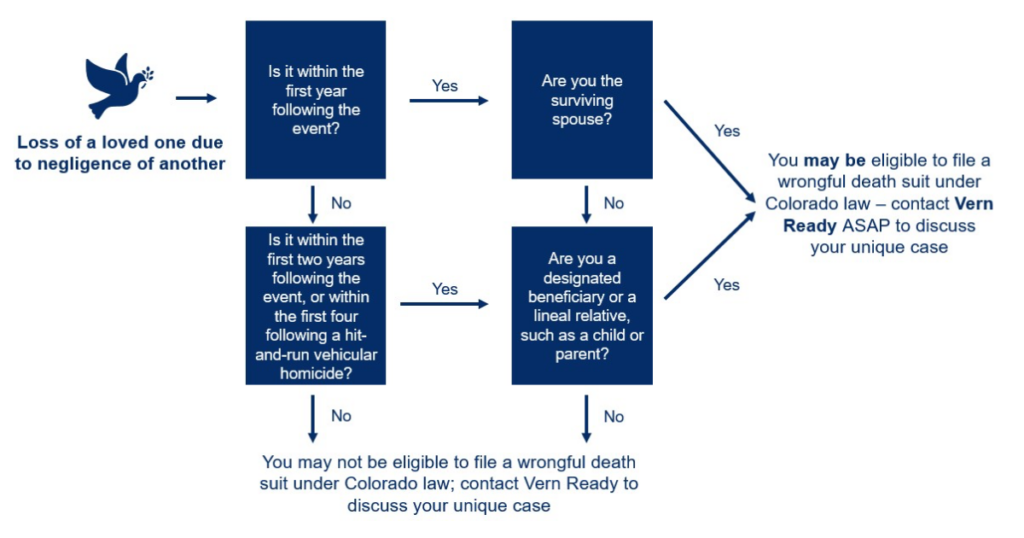Colorado Wrongful Death Claims: Who, What, and When
Firstly, if you have lost a loved one, let me express my sincere condolences. While wrongful death compensation will not bring back your loved one, it can help you recover financially after your loss and make it easier to plan for a changed future. While you are grieving and adjusting to your new reality, you need the right level of support. It would be my privilege to help you navigate that path.
What is a wrongful death claim?
A wrongful death claim can be pursued where the victim could have filed a personal injury lawsuit after an accident, had they survived. You may be able to file a wrongful death lawsuit if the death was caused by an avoidable act of a negligent party, and could include situations like motor vehicle accidents, careless driving, property (premises) liability, dangerous or defective products, or assault. A wrongful death suit can be filed regardless of whether criminal charges were filed.
Who can file a wrongful death claim in Colorado, and when?
In Colorado, some parties get top priority when filing a wrongful death claim, and those parties must file within a certain time frame, generally within two years. An exception is if a death occurs as a result of vehicular homicide that is also a hit-and-run, in which case, the statute of limitations is four years.
For the first year following a wrongful death, Colorado law gives the surviving spouse the sole right to file. If a person dies without a spouse, their children can file, and if there are no children, their parents can file.
After the first year, heirs have the right to file a wrongful death suit, or they can choose to join the surviving spouse’s suit. It’s important to understand the nuance here, because under Colorado law, an “heir” is defined as only the “lineal descendants” of the victim. This means that, in many circumstances, siblings, aunts, uncles and other relatives have no legal right to file a claim, even if they are the only surviving family members. The exception to this would be if a sibling or other relative was designated as a beneficiary, and indeed, any “designated beneficiary” can file a wrongful death lawsuit after the first year.
This simple chart puts this another way:

Wrongful Death Filing Eligibility
Families and relationships are complex, and these lawsuits can be difficult to navigate without a lawyer who specializes in wrongful death claims. For example, an attorney with experience in wrongful death claims can help in situations where conflicting claims may be an issue, such as if the victim was part of a common law marriage or if the relationship of a claimed heir is in question.
I have helped many families navigate this process, ensuring that all parties understand their rights and appropriate deadlines are met to preserve the claim at every stage.
Consultations are free, and there is no obligation to do anything other than talk about your options. Call 303-339-8846. You can also schedule your free consultation with me at my office, at your home, or another convenient location by clicking here.
